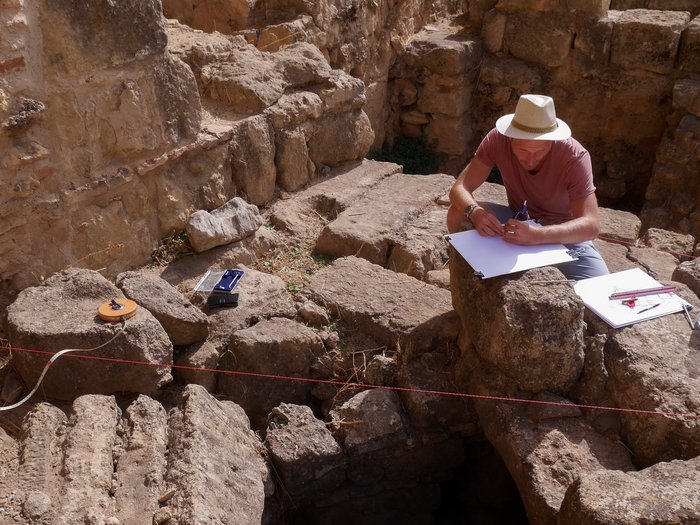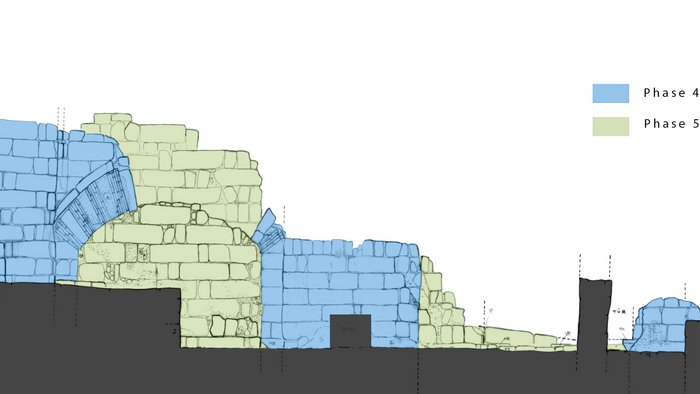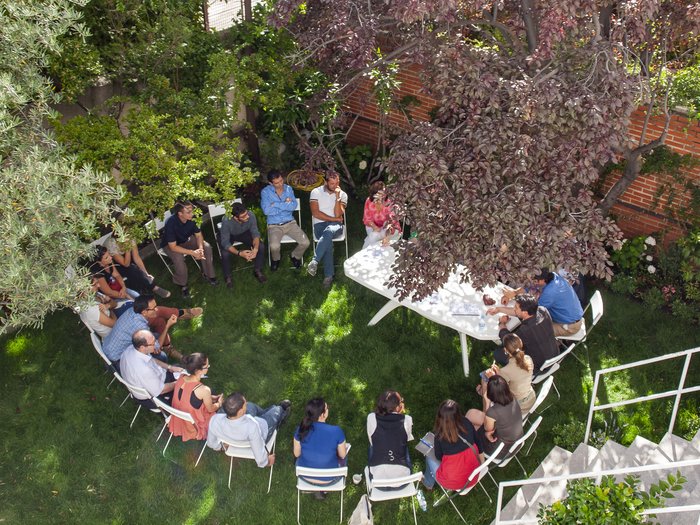
About us
Since 1954, the Madrid Department has been located at Calle Serrano 159, where the workrooms, the library, the archives and a college are located. From here, diachronic and interdisciplinary archaeological research projects are carried out in Spain, Portugal and Morocco, always in collaboration with colleagues and institutions in the host countries. There is an unstaffed research unit in Lisbon.
Profile And Organisation
The region the DAI Madrid Department is concerned with stretches over the territories of Spain, Portugal, and Morocco. Its work is devoted to the research of the region's cultures from the beginnings of humanity to the Middle Ages. From the onset the department's topical interests have been widely spread, both in terms of diachronic and interdisciplinary research, whilst also remaining adapted to its personnel structure. Basic research and source investigation, however, are of special interest. For this aim, the department manages both excavations alongside with material and historical studies and also organises workshops, colloquia, conferences, and congresses. Much significance is attached to the integration of collaborative research, especially within the DAI's research clusters. The promotion of young talent is therefore of high priority. The department's research activity is mirrored by its annual reports published in a journal since 1960, and by three monographic series, which since recently have been available in digital format. Its work is furthermore disseminated in numerous foreign, national, and international publications. It also stages exhibitions for both specialists and the wider public.
An important task is the maintenance of scholarly networks. University teaching at home and abroad is also treated in this same context. All activities overseen by the department are elaborated in close cooperation with researchers, universities, museums, antiquity departments, and research institutes in Spain, Portugal, and Morocco. Collaboration with German universities and institutions is particularly close, but upholding internationality is by nature a major incentive. Effective synergy is ensured through collaboration with the Headquarters and the DAI's sister departments, commissions, branches and research units. Moreover, the corresponding members also play an important role as pillars of this academic network. The Madrid Department offers them their own forum for dialogue.
Of special potential for research and attraction for cooperation are the department's library and archives. They are unique in the host countries with regard to both subject-related focus, range, and accessibility. Through digitisation the holdings are relentlessly reaching growing audiences.
One of the department's most remarkable properties is its quality as the only foreign archaeological mission to Spain. The French École des hautes études hispaniques et ibériques (Casa de Velázquez, Madrid) is similar, but it is also multidisciplinary. Cooperation between the two foreign representations is particularly close in the field of promoting young talent.
The Madrid Department currently is staffed with research associates, consisting of the executive director, the scientific director, three consultants, and one research assistant. In addition, there are two librarians, one library assistant, one photographer, one media designer, one secretary, and two caretakers.
Next to the head office in Madrid, the department holds a research office in Lisbon. Another institution operated by the DAI in Spain is the Commission for Ancient History and Epigraphy (Kommission für Alte Geschichte und Epigraphik) dedicated to the Corpus Inscriptionum Latinarum with its own branch quarters since 1997 at the University of Alcalá de Henares.





